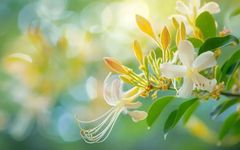
Initially blooming silver, then gold
Double flowers grow together, silver and gold
This refers to the “First Flower of Summer”
Jin Yin Hua (Honeysuckle)
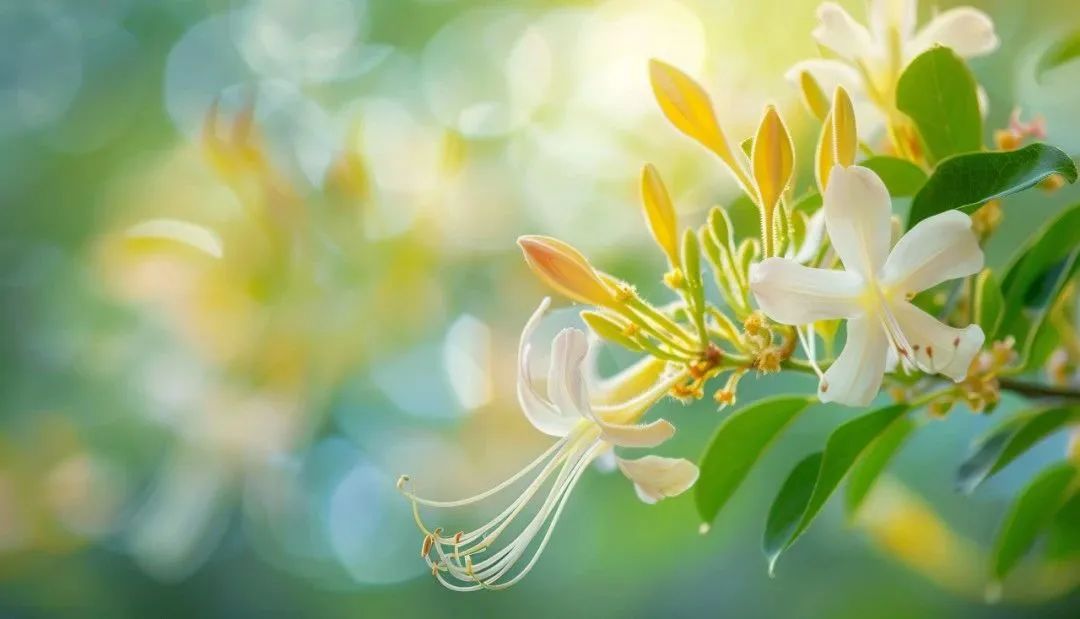
Honeysuckle is truly a treasure. Traditional Chinese Medicine (TCM) believes that Jin Yin Hua has clearing heat and detoxifying, cooling blood and reducing swelling effects, which are significantly effective for colds, coughs, sore throats, and other symptoms. In folk medicine, Jin Yin Hua is loved by the public, and people often brew it as tea, which can relieve summer heat and prevent colds.
Honeysuckle is also an eco-friendly plant. It has strong adaptability, grows quickly, beautifies the environment, and purifies the air, playing an important role in improving the ecological environment. Therefore, Jin Yin Hua also plays a significant role in landscaping and ecological restoration.
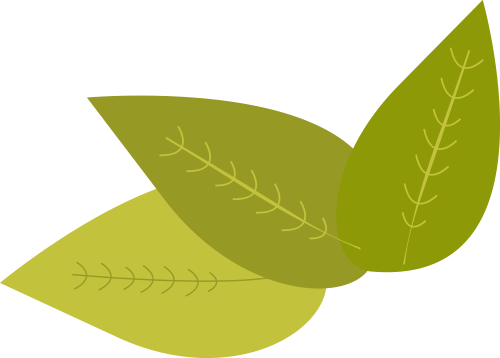
1
What are the benefits of Jin Yin Hua?

Clearing Heat and Detoxifying
Jin Yin Hua has the ability to clear heat and detoxify, effectively alleviating sore throat, oral ulcers, and other inflammatory responses.
Antiviral
Research shows that Jin Yin Hua has certain antiviral properties, which can inhibit the activity of influenza virus, hepatitis B virus, HIV, and other viruses, providing some help in treating colds and influenza.
Antibacterial and Anti-inflammatory
Jin Yin Hua has certain antibacterial and anti-inflammatory effects, effectively inhibiting the growth of various bacteria and fungi, and providing some help in treating skin infections, abscesses, and sores.
Antioxidant
Jin Yin Hua contains various active components, such as anthocyanins and flavonoids, which have strong antioxidant effects, inhibiting the production of free radicals and reducing oxidative damage to cells.

2
Five Major Contraindications for Jin Yin Hua!

Although Jin Yin Hua is a very common Chinese medicinal material, there are some people who should not consume it.
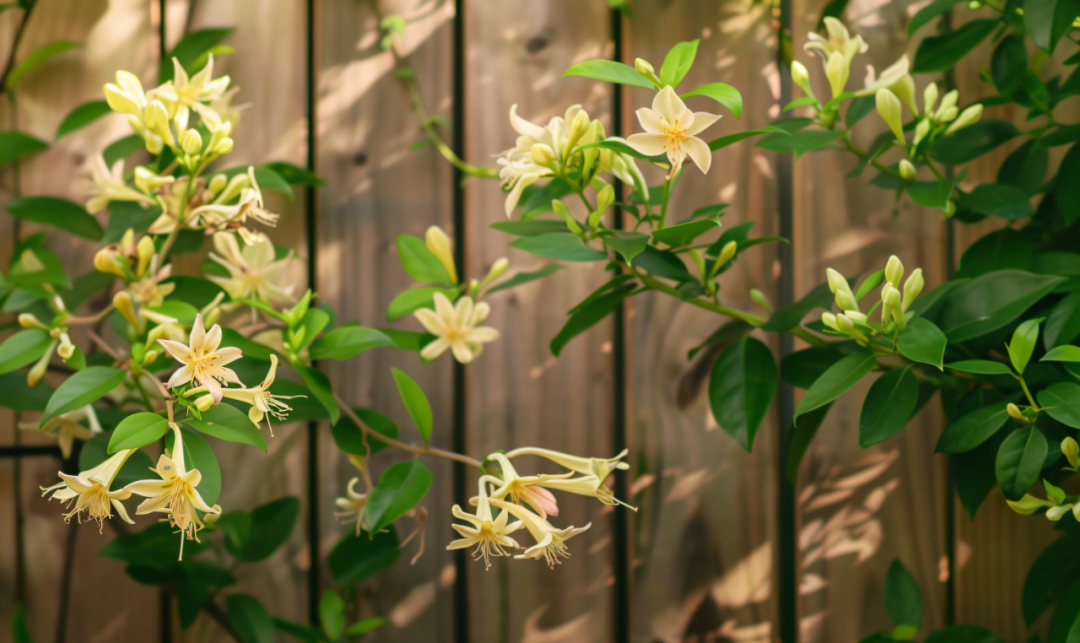
Pregnant Women
Pregnant women should avoid consuming Jin Yin Hua during pregnancy because it has certain medicinal properties that may affect the fetus.
Allergic Individuals
Jin Yin Hua is a relatively mild medicinal material, but some individuals may be allergic to it. If allergic reactions occur, consumption should be stopped immediately and medical help sought.
Individuals with Colds and Fevers
Although Jin Yin Hua has heat-clearing and detoxifying effects, consuming it during a cold with fever may worsen the condition, so it should be avoided.
Individuals with Cold Constitution
Jin Yin Hua has a cold nature, which may cause abdominal pain and diarrhea in individuals with a deficient cold constitution or cold stomach. Those with a cold constitution should reduce or avoid consuming Jin Yin Hua.
Individuals with Coagulation Disorders
Jin Yin Hua has certain anticoagulant effects, so patients with coagulation disorders need to be particularly cautious.
Especially for patients with thrombocytopenia or hemophilia, it is essential to consult a professional doctor before consuming Jin Yin Hua to avoid increasing the risk of bleeding.
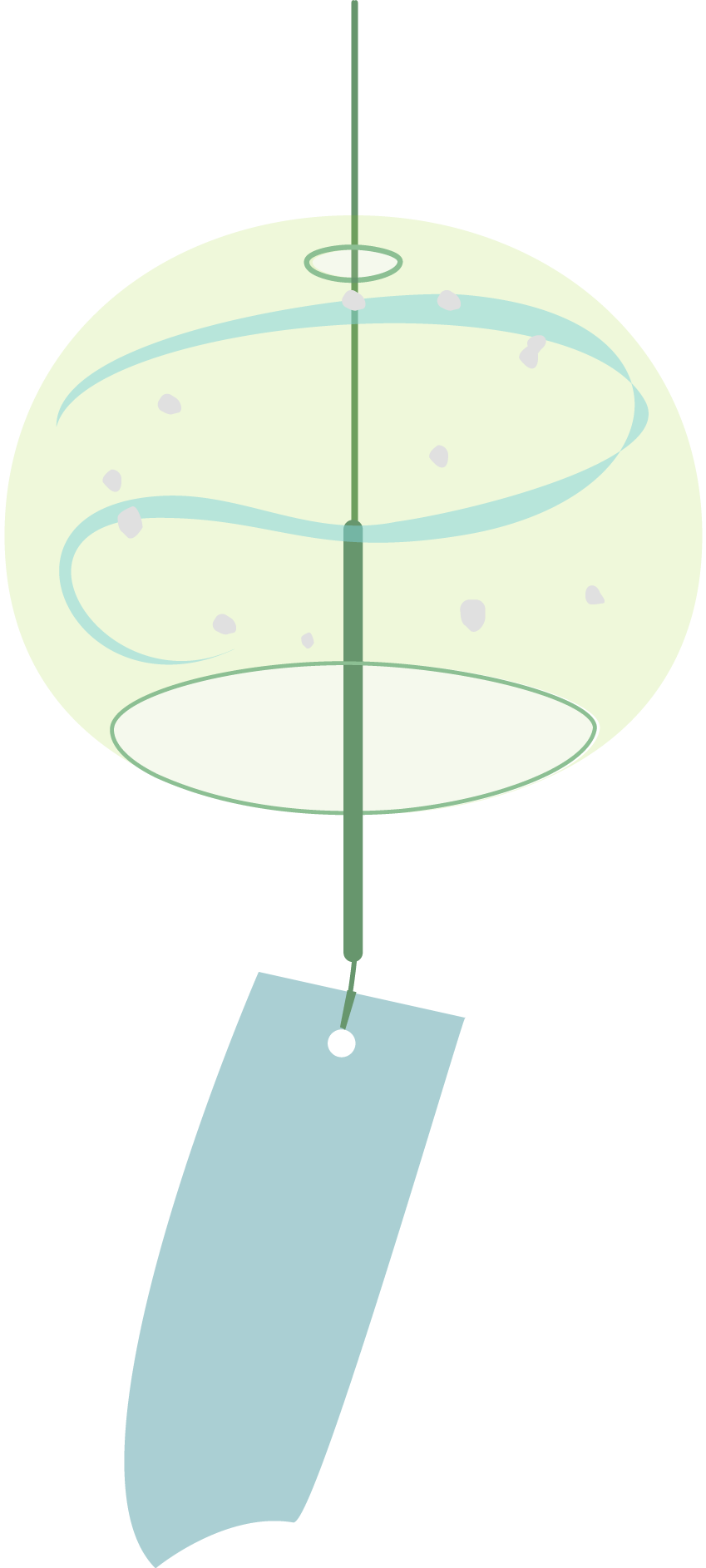
Interesting Facts

Although Jin Yin Hua has many benefits, overconsumption can also lead to problems. Excessive Jin Yin Hua may cause nausea, vomiting, and other discomforts.

3
Better Effects with These Combinations

Jin Yin Hua + Rose/Chrysanthemum
Combining Jin Yin Hua with rose or chrysanthemum and brewing with hot water can achieve excellent energizing and uplifting effects, and can also help improve skin condition.
Jin Yin Hua + Goji Berries
Drinking Jin Yin Hua with goji berries has the effects of clearing the liver, brightening the eyes, detoxifying, and relieving dryness, providing relief for a series of discomforts caused by heat conditions.
Jin Yin Hua + Chen Pi
Combining Jin Yin Hua with Chen Pi can achieve heat-clearing, detoxifying, and promoting gastric secretion effects, which can help promote digestion for patients with indigestion or poor appetite.
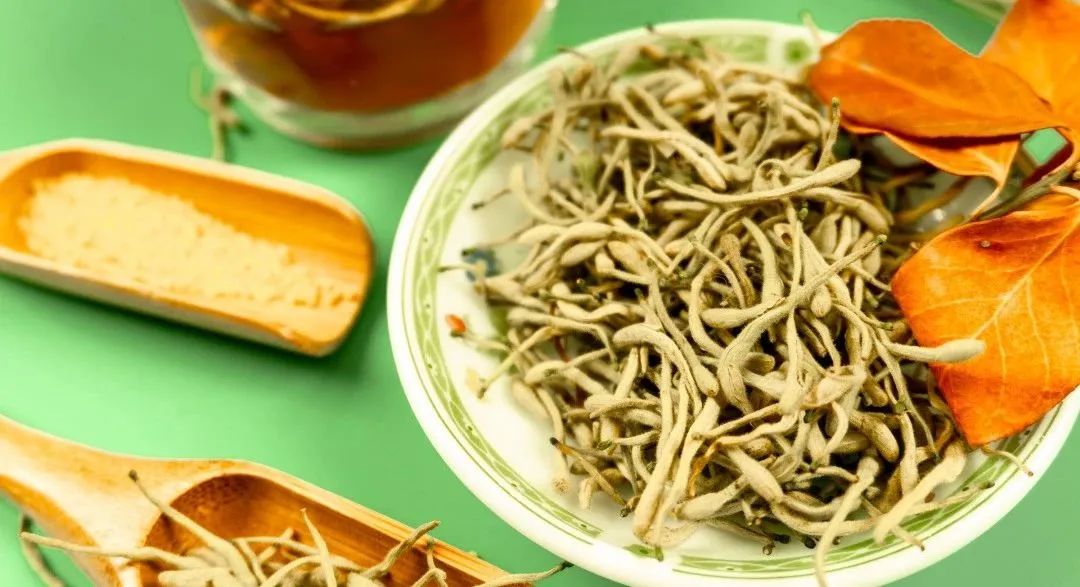

Distinguish Clearly to Avoid Misidentification and Misuse

There is a plant that closely resembles Jin Yin Hua, called “Duan Chang Cao” (Corydalis). “Duan Chang Cao” has many local names in China, such as Da Cha Yao, Ye Ge, Du Gen, Hu Man Teng, etc., while its scientific name is “Gou Wen”, a vine plant that is highly toxic, with the young leaves and roots being the most toxic; just a few leaves can be fatal. Its toxicity mainly comes from the alkaloid it contains.
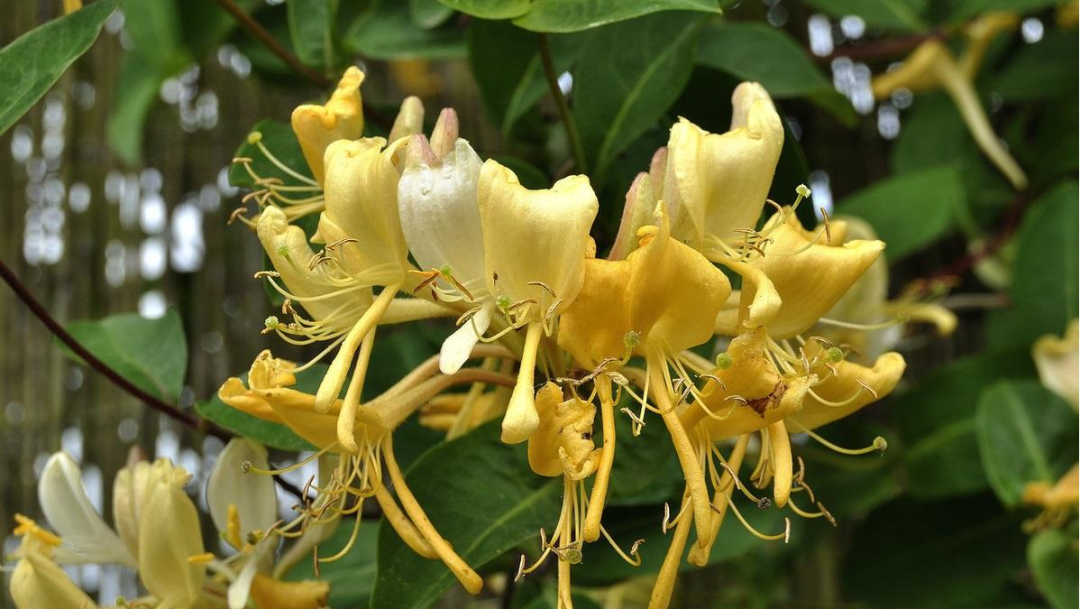
(Gou Wen)
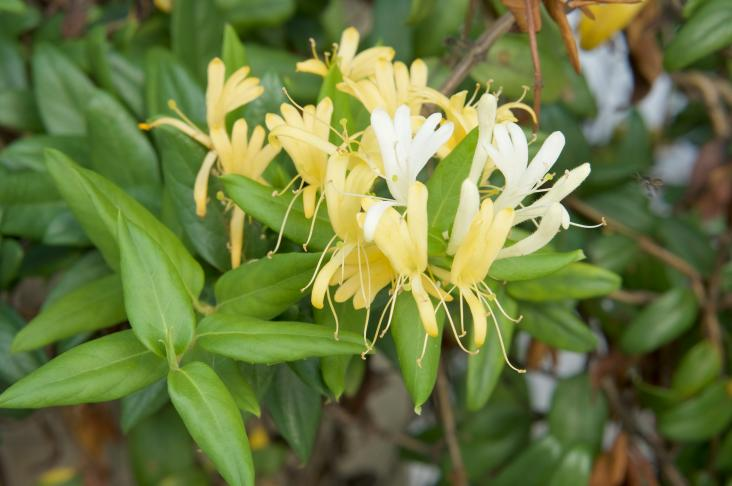
(Jin Yin Hua)
What to Do in Case of Accidental Ingestion?
① Induce vomiting immediately. However, if the poisoned person is unconscious, do not induce vomiting as it may lead to choking.
② Call 120 immediately. Hospital treatment should be sought as soon as possible; if the situation is urgent, call 120 immediately.
③ Preserve any remaining food. Any leftover plant material should be kept for examination.
④ Go for a check-up at the hospital. If someone has been poisoned, all individuals who ate together, regardless of whether they show symptoms, should go to the hospital for examination.

Foshan Health Media Team
Source: Guangdong Health and Wellness, Foshan CDC
Editor: Wu Biqi
Reviewers: Wu Qianxin, He Zhiyin, Liang Peiyu, Zheng Shaosong
Note: Some images are sourced from the internet and are used for public science promotion; if there is any infringement, please delete.





